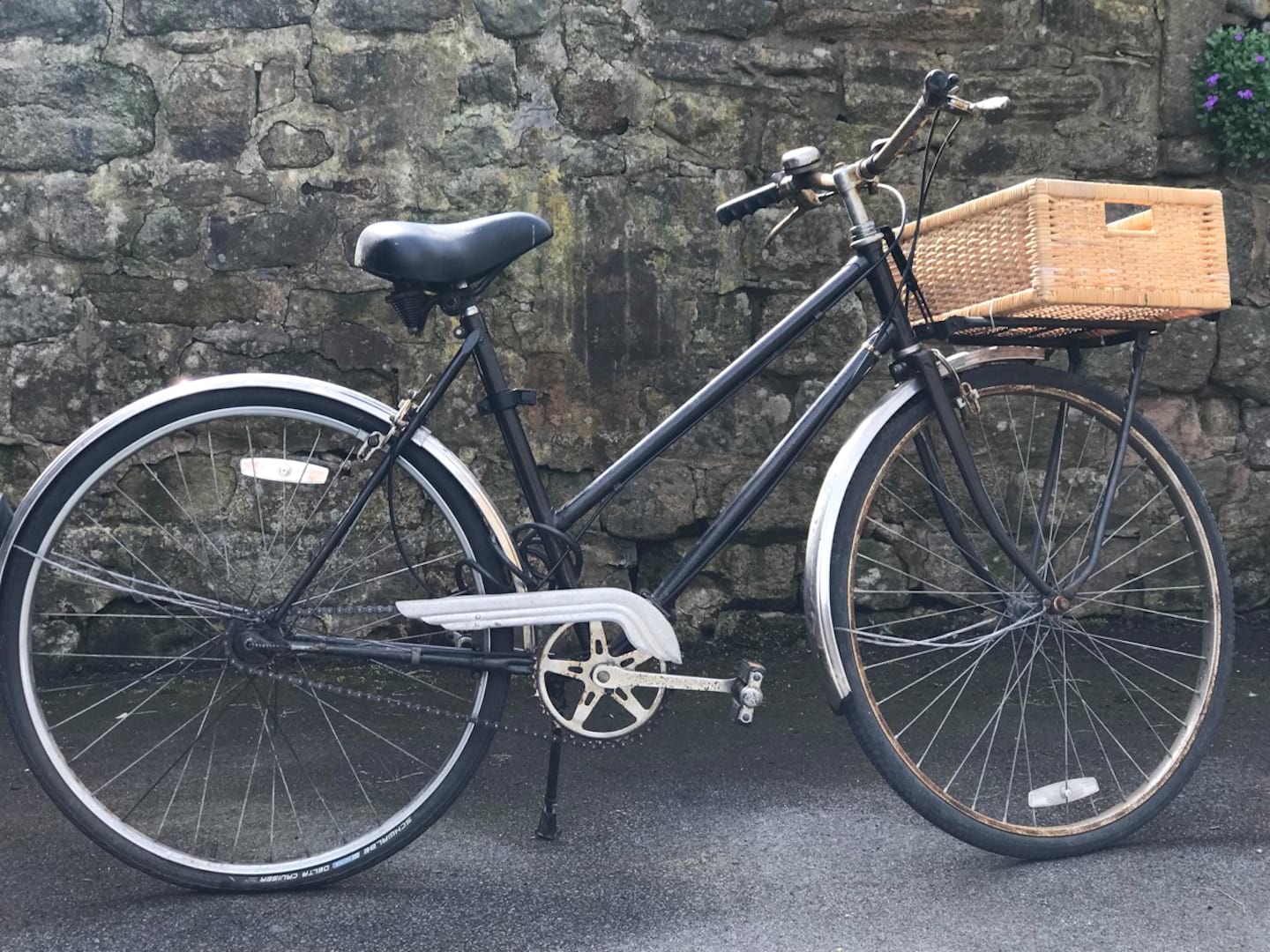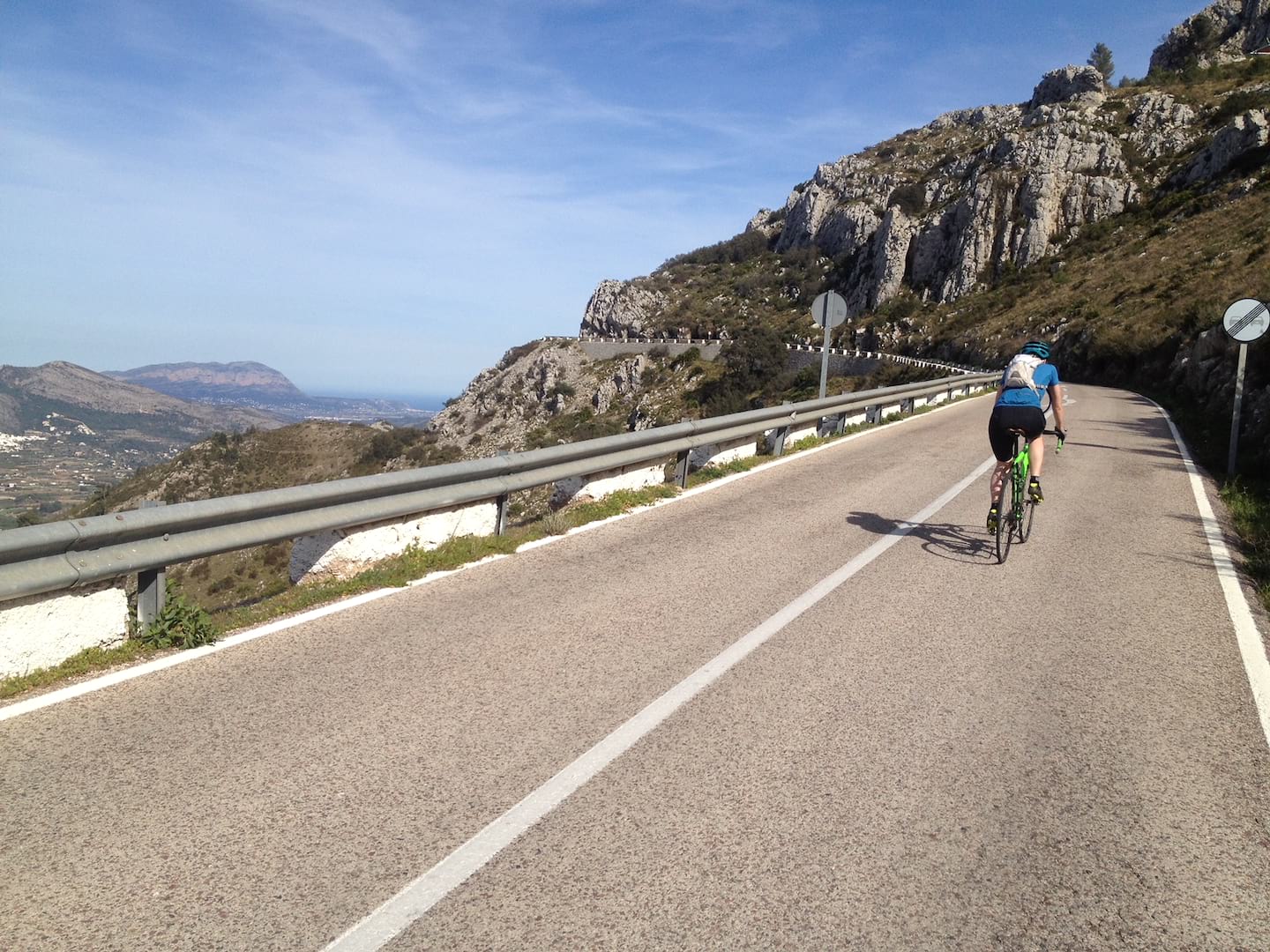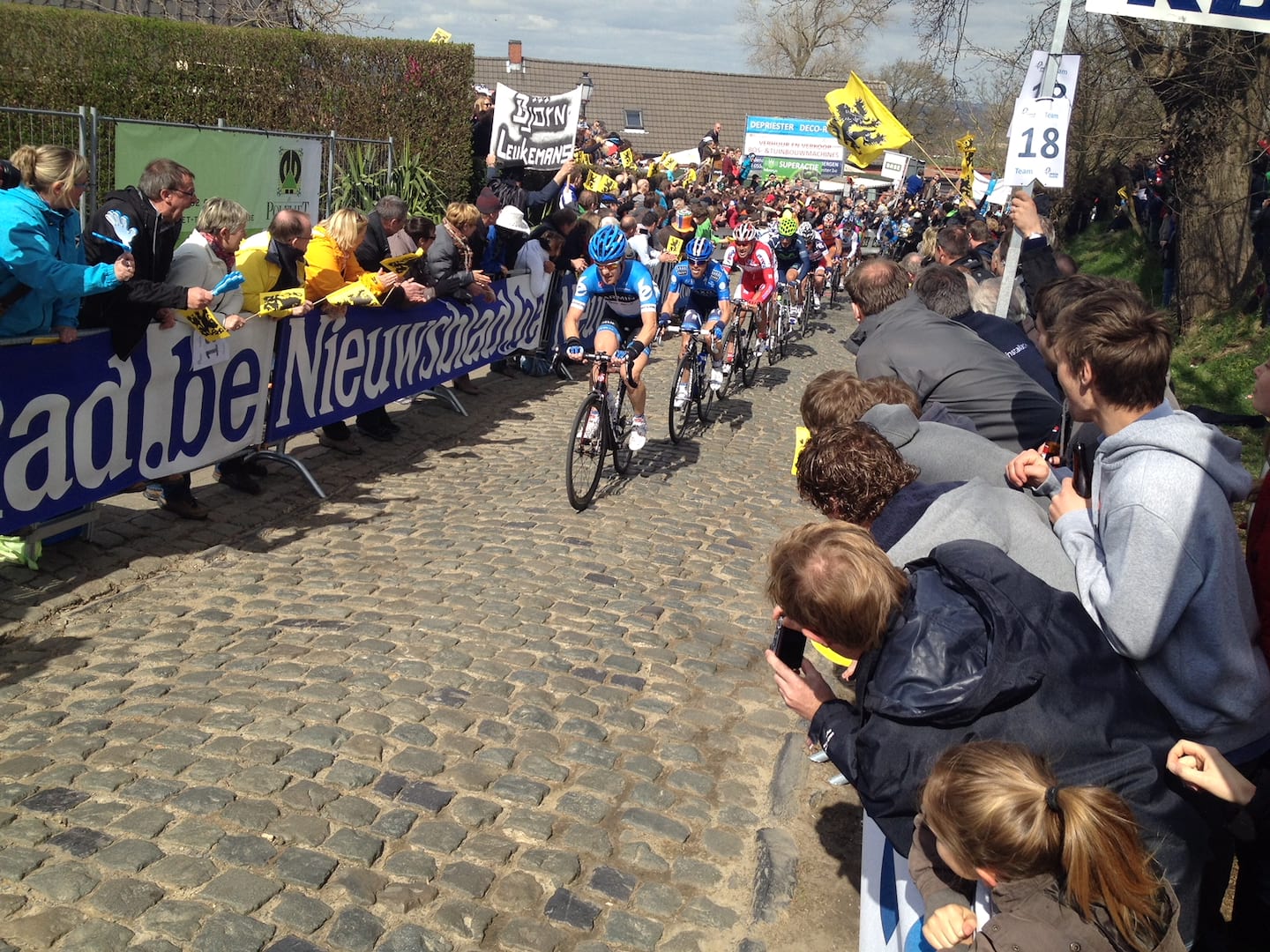I can’t believe it’s happening again. A British cyclist wins the biggest sporting event on earth, then almost immediately opens his mouth and spoils it. First we had Brad Wiggins, with the flabbergasting statement that “Ultimately, if you get knocked off and you ain’t got a helmet on, then how can you complain” – an opinion that’s so wrong, morally and legally, that if it was said about certain other types of crime, might have ended his career even before it could fizzle out.
Now Geraint is making the same blunders, airing the headline-friendly opinion that cycle helmets should be mandated by law. “I would certainly make helmets compulsory. I always wear a helmet, I’ve put on a helmet more times than I’ve buckled a seatbelt” he recently told The Times, blissfully ignorant of all the evidence from around the world which says that when you make helmets mandatory, cycling levels undergo a Rampage-style drop off a cliff.

He’s a good bloke but…
Now I generally hold Mr Thomas in a good deal of affection. He’s a lovely bloke, he’s frequently hilarious in post-race interviews, and he can literally ride away from the best cyclists in the world. But on this topic, his opinion is neither wanted nor needed. The article is accompanied by a photo of Geraint aged 12, posing with a brakeless track bike and a cup the size of his head. He’s a professional athlete who, before he was in secondary school, had dedicated his life to riding a bike at speeds that would make many people have some sort of prolapse. When most British cyclists were schlepping to work in the dark this winter, hoping we’d packed some dry pants, he was at a training camp in the sunshine somewhere. “I’ve never ridden a bike in London, apart from in a race. I’ve watched from a taxi and it does seem a bit crazy” he sagely opines. It’s a bit like an astronaut telling everyone who’ll listen that they, too, should wear a space suit when they go to work.
Thinking of mountain biking as “cycling” is a bit like thinking of going to a Star Trek convention as “socializing”
It’s not just road racers who have this bong-eyed view of the cycling world. Folks, I’ve got some uncomfortable news for you. Thinking of mountain biking as “cycling” is a bit like thinking of going to a Star Trek convention as “socializing”. Technically it’s correct, and yet it’s also a focus on one very specific aspect of a much bigger thing.
Latest Singletrack Merch
Buying and wearing our sustainable merch is another great way to support Singletrack
Take where we ride. It’s a fair generalisation to say that mountain bikers aren’t put off by hills, distance, or surfacing of a quality that might be more appropriate to the surface of an asteroid than a public thoroughfare. But what works for us might not work for kids riding to school, or someone nipping to the shops for milk. What we do – putting our bikes in cars or vans, driving them to trails, riding round in circles, and posting photos of it on the internet – is not “cycling” in any comprehensive sense. There’s a whole panorama of leisure and transport by bike out there, and we’re just one tiny corner of it.

This confusion between cycling as a sport and cycling as a way of getting around is ubiquitous in the UK. Politicians talk about it being a golden age for cycling, when what they actually mean is that we’re winning lots of races. Way more people walk or take the bus, while cycling’s share of everyday journeys remains a blip on a graph at 2% or so, yet no one talks about it being a golden age for buses.
Racing is not cycling
When my local council launches a cycling initiative, it almost invariably uses some photos of the last bike race to visit our valley. Making road racing a lazy stand-in for everyday cycling pisses everyone off. The casual cyclists see it and think they’re not serious or fit enough, while for non-cyclists, it reinforces the preconception that cycling is an odd little sport for a niche audience, rather than the most energy-efficient mode of single-person transport ever devised.

More than once while cycling to work, I’ve been asked what I’ve been training for, when the only honest answer I can give is “cake and beer”.Inadvertent flattery isn’t so bad, but there are lots of other reasons why road racing is not just unrepresentative of cycling as a whole, but often harmful to it. It’s fair to say it’s had its share of issues, but it’s not just the doping. It’s also a sport with a ridiculously narrow range of representation. Pro cyclists are overwhelmingly white Europeans, women are still sidelined by the highest profile events, Geraint is considered old at 32, and you’re not competitive if you have much more than 10% body fat.

And of course professional cyclists are keen on helmets. The speed and risk involved in road racing, even for someone who cycles, are mind-boggling. The accident rate for the 2012 Tour De France was 150 times higher than for commuter cyclists in London. (Better order a taxi for next year, eh G?) The average speed of the peloton for the entire race, mountains included, is currently about 25 mph (and trending upwards), while most cyclists are pottering along at 8-12 mph – the sort of speeds that, if they could persuade motor vehicles to stick to, would see road safety professionals included in the Queen’s honours list.
Then we’ve got the bikes – impractical machines that can barely carry a bottle, let alone a six pack from the off licence. Yet if you go to a bike shop, or check the shed at work, that’s what most people seem to be riding. The idea that you can just run an errand on your bike in normal clothes has become anathema to many people who cycle in the UK. You need the fastest bike you can afford, special shoes, and of course your special clothes, with none more special than helmets.
Ultimately, to sort this mess out, we need to stop assuming that sportspeople have any right to speak authoritatively about transport (I’ll make an exception for Chris Boardman, because he’s actually paid attention to what countries with double-digit levels of cycling are doing). And it would also be nice if the cycling industry bucked its ideas up, made more kit for everyday cyclists, and funded a few more initiatives along the lines of British Cycling’s #choosecycling campaign, or SRAM’s People For Bikes. The sort of thing that’s actually going to create more cyclists, instead of flogging stuff to the ones we already have.
And finally..
I’ll leave the last word to Brad, who seems, like Geraint, to have moderated his views on safety equipment when confronted with a bit of evidence. “He’s the Tour de France winner now, and everyone wants to know his view on certain things like he’s some sort of Messiah”. We need to remember that just because someone can win a bike race, it doesn’t mean they know much about cycling.





I agree with the article – but there’s another point worth considering. What’s the point in making more laws when the ones we have can’t be enforced? More prosecutions for phones while driving would help cycling safety. More examples: lots of theft etc, that the police don’t have the resources to investigate; a Bill in Parliament to make it illegal to buy any kind of knife by mail; abuse of employment law. Not wearing a helmet doesn’t put anyone else at risk. If we can’t enforce laws aimed at protecting OTHER people, we don’t need more laws that only protect the would-be criminal.
During a 35+ year career as a pathologist I examined the bodies of several cyclists who died in road crashes. All cases had one thing in common, the wearing or not wearing of a helmet made no difference (it is not much help when the back wheel of an HGV has gone over your chest).
I wear a helmet for the low speed, low energy falls that are common, and it has diminished many a scrape or bump. I have no belief that a helmet would help in a serious crash.
Ok, but with a helmet at least you get a better looking organ donor.
I’ve been concussed and smashed a helmet. Did the helmet help? Of course.
I grew up not wearing a helmet, and my buddy fractured his skull on a simple head-meets-kerb kids biking accident. Would a helmet have helped? Of course.
I never understand the need for the debate – it’s like listening to Americans decrying the need for a national healhcare system…
My brother got hit head on by a van on the wrong side of the road. Consultant said he’d be dead without his helmet. I guess he was lucky to escape with TBI that you’d not notice if you met him. So yeah, I never go out without a lid on, neither does my wife or daughter.
Should they be compulsory? Probably not. Should they be actively encouraged? Probably.
Should careless drivers be dealt with more severely? Probably.
Should cyclists that behave like idiots, giving the rest of us a bad name and giving the anti cyclist idiots ammunition be punished? Yup.
I hear you Ant but you can’t have it both ways, on the one hand stressing the differences between ‘cyclists’ and ‘racers’ and on the other hand berating a racer who makes a comment which applies to all bike riders. Sure he moderated his views but as you say, we love him for his hilarious post-race interviews – his answers are generally off the cuff and honest. If you disagree then go easy on a guy who’s supposedly out of touch with the everyday cyclist. Whether a sportsman should acknowledge their new found status of spokesperson (albeit hoisted on them by the press), that’s a whole other topic…
Keep up the Lewis Hamilton/driving, astronaut/work, Star Trek/socialising analogies 🙂
Dave, that’s the point. Folk like G and Wiggins who do bunch sprints at 40 mph for a living think that the same risks apply to little old ladies riding to the shops.
Helmet compulsion wouldn’t affect us at all – we’d still carry on as usual – but it would make bikes much less attractive as a utilitarian way of getting about. You don’t put on a stab vest to walk to the shops.
“I agree with the article – but there’s another point worth considering. What’s the point in making more laws when the ones we have can’t be enforced? More prosecutions for phones while driving would help cycling safety.”
^^This^^ x10000000, but the point normally falls on (wilfully) deaf ears IME…
If the goal of those pushing helmet compulsion was to improve “Road Safety” then there are several measures that sit well ahead of lids in terms of both positive benefits and financial costs, greater enforcement of existing road traffic laws being the prime one…
Of course we all know safety isn’t the prime concern here, it’s keeping bicycle users “in check” and appeasing a frothing, car driving, minority (and it is a minority).
You have to feel sorry for G in all of this, it was more than likely an innocent comment in response to a seemingly innocent question, on a topic he probably doesn’t really pay much thought to. But it was always going to be twisted like it has been, national newspapers aren’t really interested in the distinction between Sporting, leisure and Utility cycling, nor do they care about how changes in the law could actually have a detrimental effect on the population’s general health and well being, it’s an easy quick headline grabber/bit of click-bait to help the numbers.
And while I still think most of these things are just part of the “Echo box” media people seem to consume these days, we have seen in recent years that popularism, creating false “naratives” and broad spectrum “Influencing” of people is an effective method already being employed by certain groups to get what they want in terms of social, political and legal changes.
So unfortunately G’s throwaway comment, has become a bit of a gift to those who would like to see another measure brought in to drive bicycles off the roads…
Do I think people should wear helmets? Yes. Do I? Yes. Should it be compulsory? No – due to the aforementioned freefall in the number of cyclists.
We need a bigger conversation, one that involves everyone on the road. Start it with a group hug and everyone getting their gripes off their chest (running red lights, road tax, close passing, riding two abreast etc), then move to sitting down and realising that everyone’s just trying to get somewhere (alive), that we don’t need to drive to the shops and the general populous could do with losing a few pounds. After lunch I’d suggest banging town planners heads together, shortly followed by that lot in Westminster and suggesting they look at things in a more joined-up and consistent fashion. Post afternoon-tea everyone would decide on a sensible plan to get the job done and be home in time to put the kids to bed and watch the next episode of Bodyguard on the BBC.
We, as cyclists 😉 , are all very well versed in the pro’s/cons of helmets.
That being said, nobody has mentioned, in specific terms, that if you want to make something SAFER (which seems to be the gist of the pro-helmet non-cyclists brigade) then surely you would use the hierarchy of controls for risk assessment as a good starting point (as is used for all activities at work)
Eliminate the risk with control measures (Stop Riding, but we don’t want to stop riding) so the next step is REDUCE the risk by putting control measures in place which do this. In laymen’s terms segregation/Infrastructure etc etc is what achieves this. Helmet use, or to give it its proper name Personal Protective Equipment (like Hi Viz etc) is the LAST control on the list. This is done in every industry and for all work places, so perhaps this is probably, maybe, the correct way to go about this?
But of course, we all know, as stated above, this is NOT for safety is it?!
I always wear a helmet, even when riding 500 meters to the closest grocery store. I have crashed a few times in a way where the helmet was of help, and a couple times in a way that it made no difference at all (like going to the ground jaw first).
I do not think the helmet will save my life if a car / truck / bus hits me – in that case I will likely get crushed in other ways. But up till now, all crashes except for one have happened to me alone, with no other parties involved, and most of them at slow speeds. These are the kinds of crashes where the helmet is of most protection, and these are why I wear it – especially as I ride year round and we have a full on winter with icy roads for a few months.
More importantly, in traffic I usually have a headlight and rear light – ones that are visible in bright sunshine as well (Hope District+ rear, awesome light!), and these probably contribute more to safety than having the helmet on. Also I tend to select my routes primarily based on where there is the least car traffic, preferably taking routes where there is none, even if it means riding several kilometers more. My commute would be 9 kilometers by the shortest route, 13 km by the nicest, with least traffic – so I almost always take the 13 km route.
Where I live, helmet use is compulsory, but there is no punishment for not wearing one – that is one decent way of putting it.